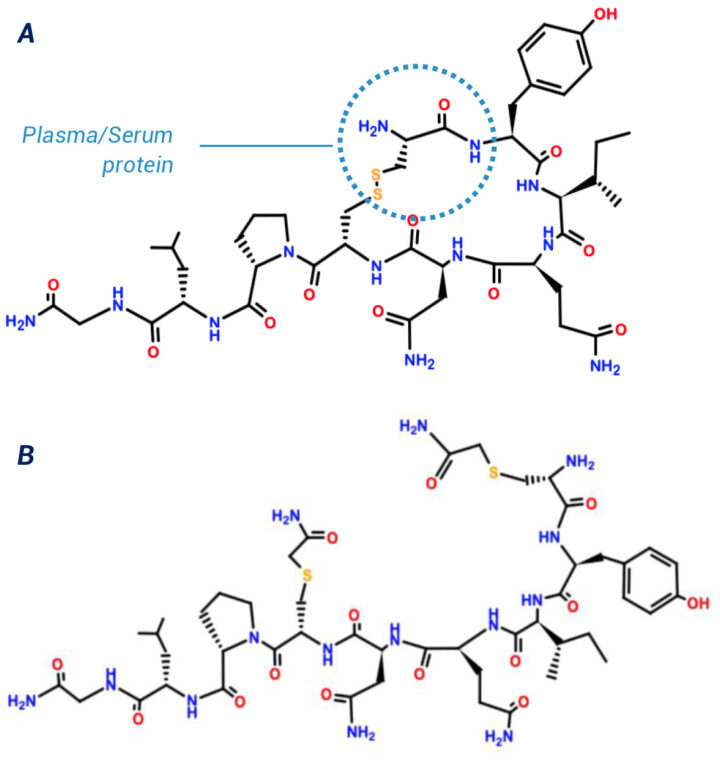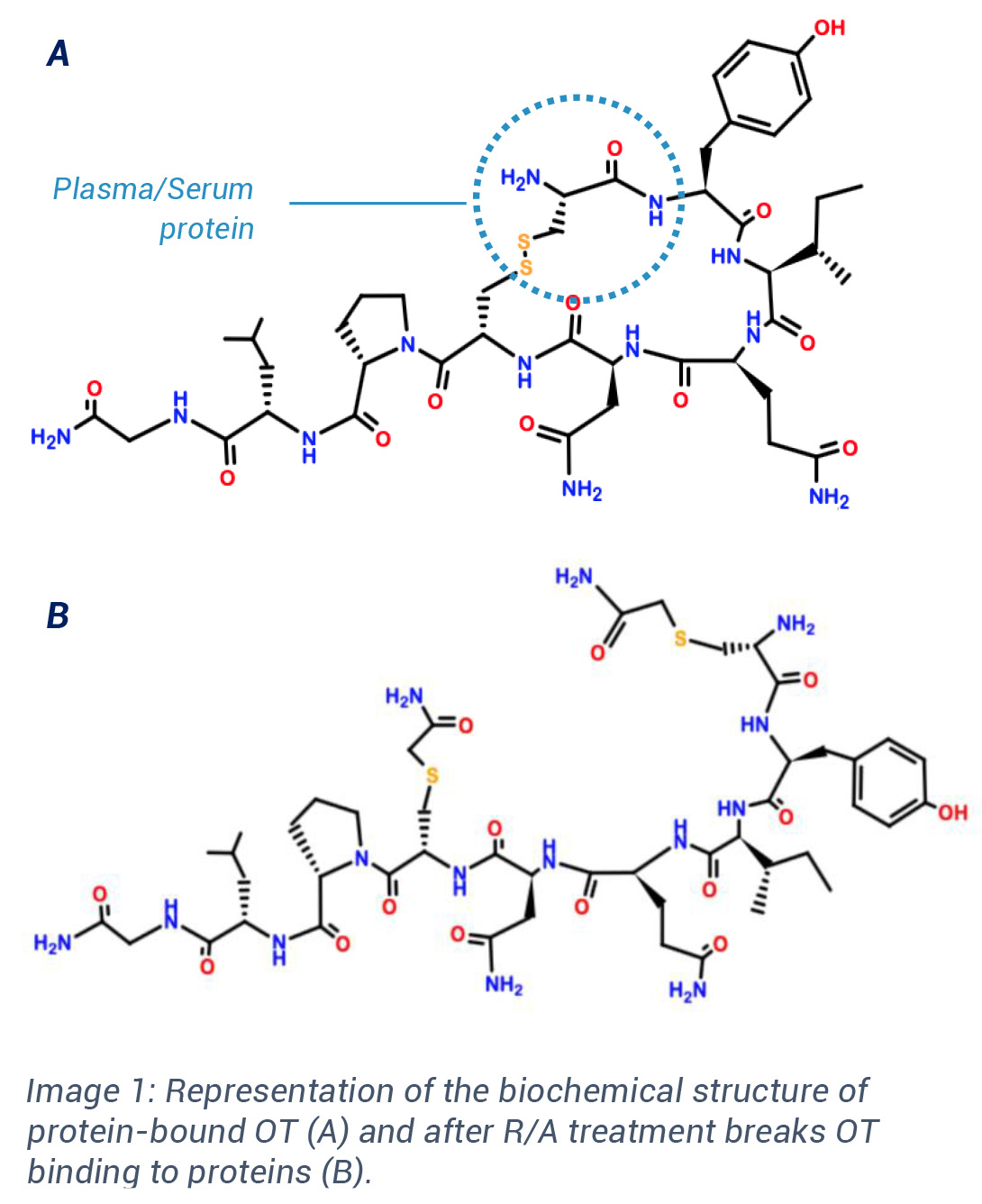Oxytocin (OT) is a peptide hormone and neuropeptide. It is normally produced in the hypothalamus and released by the posterior pituitary. It plays a role in social bonding, sexual reproduction, childbirth, and the period after childbirth, in animals and humans. There is a growing interest in knowing oxytocin’s role in positive psychological adaptation and behavior, growth, physical recovery processes, health, and well-being.
However, OT has remained challenging to sample, usually requiring invasive and stressful measures in the brain or blood, which limits its use. Additionally, OT has a natural tendency to covalently adhere to proteins, which results in free and bound oxytocin pools. The levels measured by methods that can only detect its free form may underestimate the total amount of OT present and, in consequence, sample pre-processing is required. In the past, despite the advantages of non-invasive saliva sampling, saliva was not considered an optimal OT source.
Now, researchers have demonstrated detectable levels of OT in saliva samples. Using saliva as a medium to detect and measure biomarkers related to happiness and pain could be very useful, for example, in measuring OT in farm animals, where stress can affect the production and quality of meat or milk. Researchers from the Department of Animal Medicine and Surgery of University of Murcia have developed an in vitro procedure, to quantify both free and protein-bound oxytocin using biological samples – specifically saliva – without the need to process the sample, using monoclonal and polyclonal antibodies. The technology covers both the method to quantify OT levels, the monoclonal and polyclonal antibodies used in the procedure, and the kit that includes them. The objective of Universidad de Murcia is to license the technology to bring this innovation to the market.
Institution: Universidad de Murcia
TRL: 3-4
Protection status: Patent application
Contact: Vicente Barberá / vicente@viromii.com


